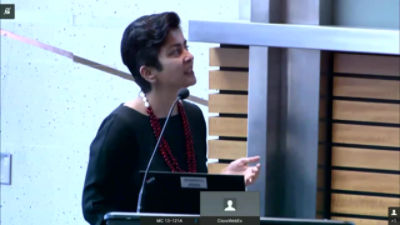Cash transfers are a major anti-poverty tool, reaching 400 million poor households around the world. While there may be no more direct means to reduce poverty than providing cash, even this straightforward intervention can carry unintended consequences that undermine its intended goal.
In this Policy Research Talk, World Bank economist Eeshani Kandpal will present new research showing that cash transfers can generate significant negative spillovers for nonbeneficiaries. She will highlight an example from the Philippines where a targeted cash transfer program significantly increased local prices of perishable protein-rich foods, which in turn raised stunting rates among young nonbeneficiary children by 34 percent. The underlying relationship between prices and transfersˇŞprices rose the most in villages with the largest cash influxˇŞhas been found in other contexts as well. While these effects are likely concentrated in the poorest areas, fully understanding the set of conditions under which such spillovers arise will be critical in designing effective anti-poverty policies.
The relationship between prices and saturation demonstrates the risks of household-based targeting. A key question Kandpal will address is whether there are practical alternative targeting strategies that allow governments to distribute limited resources over a wide geographic base while avoiding such spillovers. She will conclude with a discussion of the literature on targeting strategies, including Universal Basic Income, and what we might infer about the potential spillovers from these various strategies.


